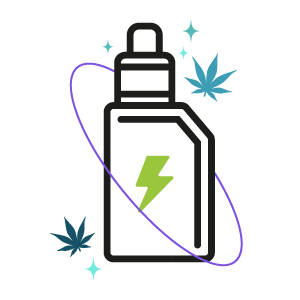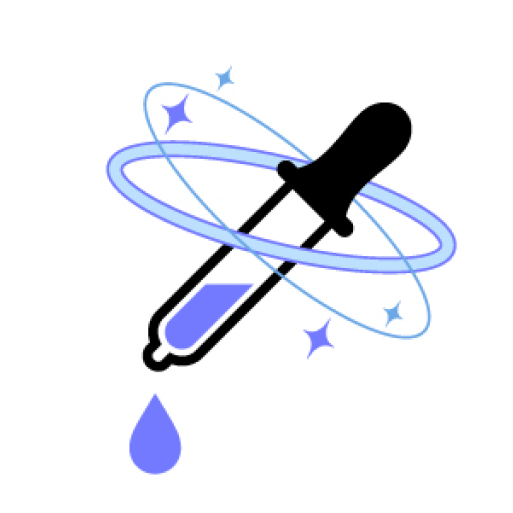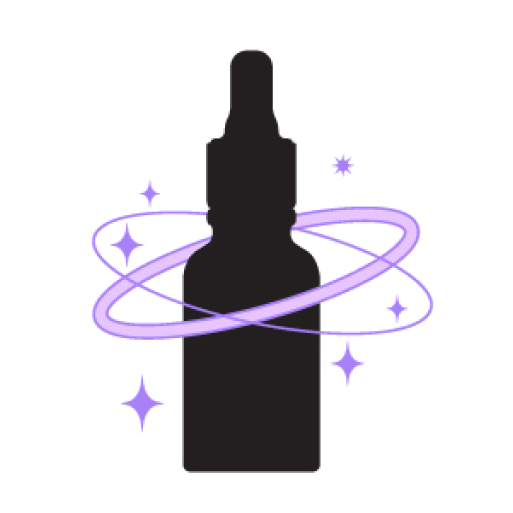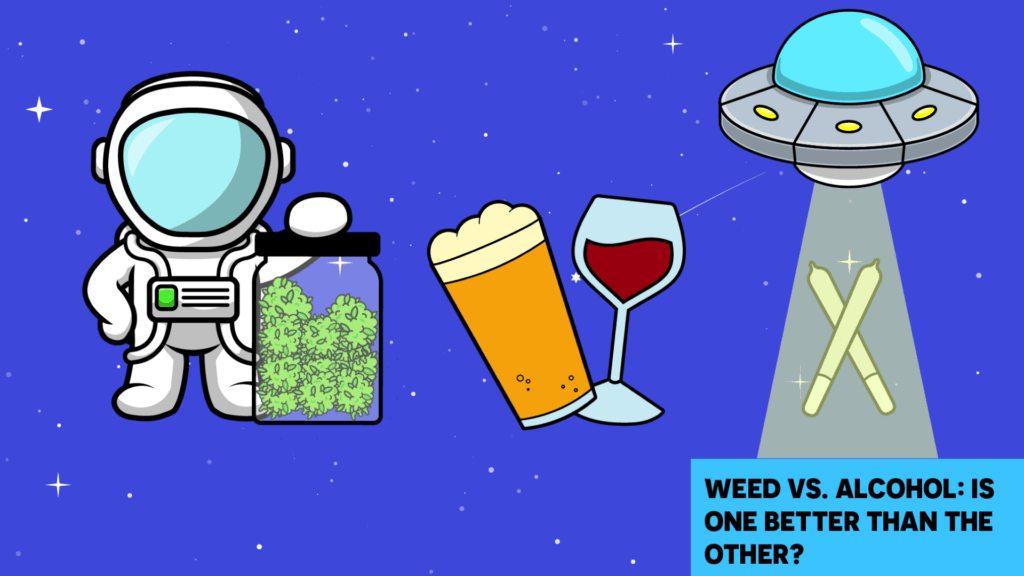THCA Explained: Health Effects, Usage, and Available Products
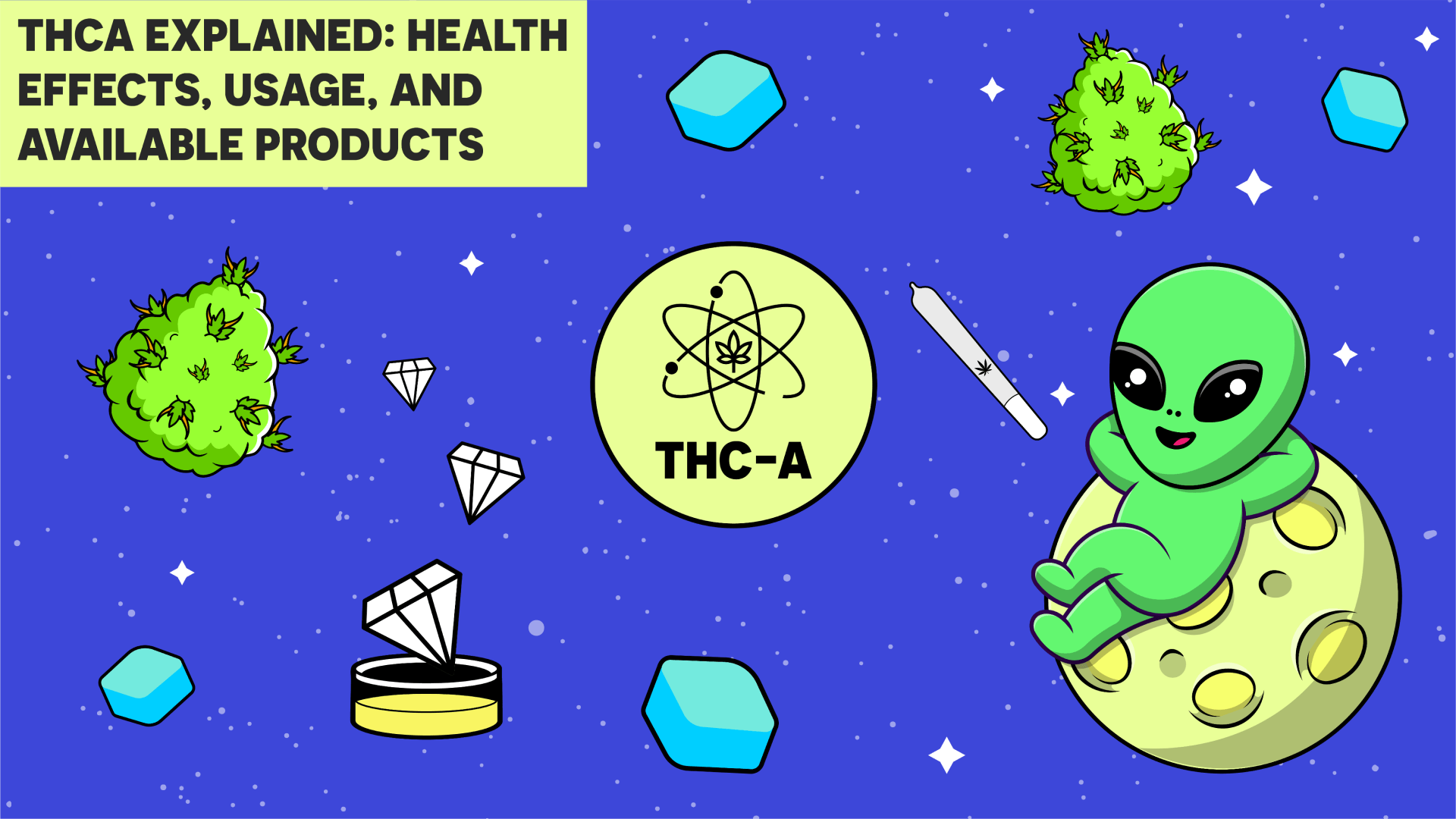
Whether you’re a curious enthusiast or someone seeking valuable insights, join us on this journey to understand the many facets of THCA and its role in the world of wellness. In this informational exploration, we will uncover the diverse effects of THCA, explore its associated benefits, and navigate through the wide array of products that showcase its unique properties.
As we embark on this informative journey, it’s essential to grasp the science behind THCA and its interactions with the human body. THCA, in its raw form, doesn’t produce the psychoactive effects commonly associated with its counterpart, THC. Instead, it holds promise for various potential health benefits, such as anti-inflammatory and neuroprotective properties. Throughout this guide, we will uncover the intricate details of how THCA functions, providing you with a solid foundation to appreciate the dynamic relationship between this compound and your well-being.
What is THC-A?
THC-A, or tetrahydrocannabinolic acid, is a naturally occurring compound found in the cannabis plant. Through a process called decarboxylation, often triggered by heat, THCA can convert into THC. As the cannabis industry explores various cannabinoids for their potential health benefits, THCA is a key player in this evolving field of research.
Does THCA Make People High?

It is the precursor to THC (tetrahydrocannabinol), the well-known psychoactive component of cannabis. In its raw, unheated form, THCA does not induce the characteristic “high” associated with THC.
While THCA itself does not produce psychoactive effects, it is of growing interest due to its potential therapeutic properties, including anti-inflammatory and neuroprotective effects.
How Does THC-A Interact with the Human Body?

The interaction between THCA and the human body is facilitated through the endocannabinoid system (ECS). The ECS is a complex network comprising receptors, enzymes, and endocannabinoids—naturally occurring cannabinoids within the body. This intricate system plays a crucial role in regulating various physiological processes, including pain, inflammation, hunger, and mood.
In its raw form, THCA is non-psychoactive and does not directly engage with the ECS. To exert its effects, THCA must undergo decarboxylation, transforming into THC. Once this conversion occurs, THC can bind to the CB1 and CB2 receptors within the ECS.
However, the lack of direct interaction with the ECS in its raw state doesn’t imply that THCA has no impact on the human system. Recent studies suggest that cannabis extracts rich in THCA may offer several benefits for certain individuals.
What are the Benefits of THCA?
There is a growing body of evidence supporting the THCA benefits associated with health. Several potential THCA benefits have been explored, including:
- Neuroprotective Properties: THCA exhibits neuroprotective capabilities, suggesting its potential to safeguard the brain from damage caused by conditions such as Alzheimer’s disease, Parkinson’s disease, and traumatic brain injury.
- Antiemetic Effects: THCA has demonstrated anti-emetic capabilities, indicating its effectiveness in addressing nausea and vomiting. This quality makes it a potential candidate for treating disorders like chemotherapy-induced nausea and vomiting.
- Appetite Stimulation: With its ability to act as an appetite stimulant, THCA may offer assistance to patients experiencing appetite loss due to illnesses like cancer or HIV/AIDS.
- Anti-Inflammatory Potential: THCA has been shown to possess powerful anti-inflammatory properties, suggesting its potential effectiveness in the treatment of conditions such as arthritis, Crohn’s disease, and other inflammatory disorders.
- Analgesic Actions: The analgesic actions of THCA imply potential benefits in pain relief. This characteristic positions it as a possible alternative to opioid medications, which can be addictive and carry various adverse effects. The exploration of THCA benefits opens up avenues for novel and potentially safer approaches to managing various health conditions.
THCA & THC: What’s The Difference?

THC (tetrahydrocannabinol) and THCA (tetrahydrocannabinolic acid) are both cannabinoids found in the cannabis plant; however, they exhibit significant differences.
- As previously established, THCA serves as the precursor to THC and only becomes psychoactive when subjected to heat or decarboxylation, such as through smoking, vaporization, or baking into edibles. In its raw form, THCA is non-psychoactive, lacking the typical “high” associated with THC.
- The molecular structures of THCA and THC diverge, primarily due to the absence of a carboxylic acid group in THC’s chemical structure, which is present in THCA. This structural disparity is the key factor behind THCA’s non-psychoactive nature and THC’s psychoactive effects.
- The potential benefits of THCA and THC vary. While THC is renowned for its psychoactive properties and potential therapeutic effects like pain reduction and appetite stimulation, THCA has been proven to offer a broader range of benefits, including analgesic, appetite stimulant, anti-inflammatory, and neuroprotective properties.
- Different cannabis strains may contain varying amounts of THCA and THC. For instance, some strains may be high in THC but low in THCA, while others may be rich in THCA but low in THC. Understanding these distinctions is crucial for individuals seeking specific effects from cannabis consumption.
Will THCA Show Up in a Drug Test?
Several drug tests target THCA as an analyte for marijuana screening. Consequently, the presence of THCA has the potential to yield a positive result in drug tests. If you anticipate undergoing a drug test, it is advisable to abstain from consuming products that contain THCA.
Where Can THC-A Be Found?
The legal status of THCA exists in a grey area, as it is not classified as a controlled substance under federal law. However, given its role as a precursor to THC, it may be considered an analog. It’s noteworthy that the cannabis plant predominantly contains THCA rather than THC.
THCA is naturally present in freshly harvested cannabis. To preserve it in its raw form and prevent decarboxylation, the plant should be consumed raw. This has led to a rising trend of incorporating raw cannabis leaves into smoothies, juices, and salads.
For those not inclined towards raw consumption, a quick online search can guide you to a range of raw cannabis tinctures or products like transdermal patches. It’s important to note that some full-spectrum CBD products may contain trace amounts of THCA. If you’re curious about THCA flowers or concerned about THCA side effects, exploring these options will provide insights into the diverse ways people are incorporating THCA into their wellness routines.

